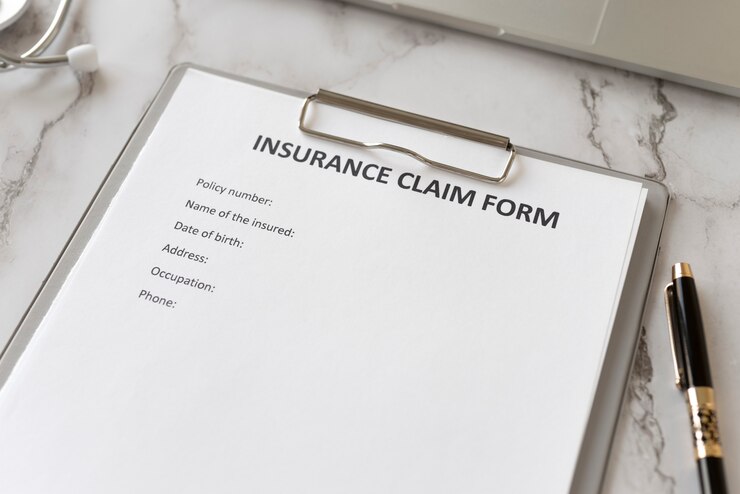Running a business is not just about making money; it also involves managing risks. One essential aspect of risk management is having liability insurance. This insurance protects your business from legal claims and lawsuits. But have you ever wondered why the cost of liability insurance varies from one business to another? In this article, we’ll delve into the factors that determine your business liability insurance cost in simple terms.
Understanding Liability Insurance
Before we dive into the factors that influence the cost of liability insurance, let’s first understand what liability insurance is. Liability insurance is a type of coverage that protects your business in case someone sues you for injury, property damage, or other damages they claim you are responsible for. It helps cover legal fees, settlements, and judgments, allowing your business to continue operating without facing financial ruin.
Factors That Determine Your Liability Insurance Cost
1. Type Of Business

The nature of your business plays a significant role in determining your liability insurance cost. Some businesses inherently carry more risk than others. For example, a construction company might face higher liability insurance costs compared to a retail store. This is because construction sites have more potential for accidents and injuries.
2. Business Size
The size of your business matters too. Larger businesses often have more assets and employees, which can increase their liability insurance costs. Smaller businesses may have lower insurance premiums because they typically have fewer risks.
3. Location
Where your business operates can impact your liability insurance cost. Some regions have higher insurance costs due to factors like higher crime rates or more frequent natural disasters. So, if your business is located in an area prone to these issues, you may pay more for liability insurance.
4. Industry-Specific Risks

Certain industries come with unique risks. For example, a restaurant may have higher liability insurance costs because of potential food-related illnesses or accidents in the kitchen. It’s essential to choose an insurance policy tailored to your specific industry to ensure you’re adequately protected.
5. Coverage Limits
The level of coverage you choose will directly affect your insurance cost. If you opt for higher coverage limits, your premiums will be higher. Conversely, lower coverage limits mean lower premiums. It’s essential to strike a balance between having enough coverage to protect your business and maintaining affordability.
6. Deductibles
A deductible is the amount you must pay out of pocket before your insurance kicks in. Choosing a higher deductible can lower your premiums but will require you to pay more if a claim arises. On the other hand, a lower deductible will result in higher premiums but less upfront cost in the event of a claim.
7. Claims History

Your business’s claims history is a crucial factor in determining your liability insurance cost. If you’ve had previous claims, especially large ones, insurers may view your business as a higher risk and charge higher premiums. Conversely, a clean claims history can help lower your insurance costs.
8. Employee Safety Practices
Having strong safety practices in place can positively impact your liability insurance cost. If your business prioritizes employee safety, it can lead to fewer accidents and claims, ultimately reducing your insurance premiums.
9. Risk Mitigation Measures
Implementing risk mitigation measures can also lower your liability insurance costs. This might include security systems, safety training, and risk management programs. Insurers often reward businesses that take proactive steps to reduce risks.
10. Annual Revenue
The size of your business, as measured by annual revenue, can affect your liability insurance cost. Insurers may charge higher premiums for businesses with larger revenues, as they assume that larger companies have more assets and, therefore, more to lose in a lawsuit.
Conclusion
In conclusion, several factors determine your business liability insurance cost. These include the type of business you run, its size, location, industry-specific risks, coverage limits, deductibles, claims history, employee safety practices, risk mitigation measures, and annual revenue. By understanding these factors, you can make informed decisions about your liability insurance coverage and costs. It’s essential to work with an experienced insurance agent to find the right balance between protection and affordability for your business. Remember that investing in liability insurance is a crucial step in safeguarding your business’s future.
Also Refer : How Boat Insurance Affects Your Wallet
FAQs
What is Liability Insurance?
Liability insurance is a type of coverage that protects businesses from legal claims and lawsuits. It helps cover costs related to injuries, property damage, or other damages that the business may be held responsible for.
How Does a Deductible Work in Insurance?
A deductible is the amount you must pay out of pocket before your insurance policy starts covering expenses. For example, if you have a $500 deductible and a $1,000 claim, you would pay $500, and the insurance company would cover the remaining $500.
Why Do Insurance Premiums Vary by Location?
Insurance premiums can vary by location because different areas may have different levels of risk. Locations with higher crime rates, natural disaster risks, or other factors that increase the likelihood of claims tend to have higher premiums.
What Are Industry-Specific Risks in Insurance?
Industry-specific risks refer to the unique risks and challenges faced by businesses in certain industries. For instance, a restaurant might face food-related illness risks, while a construction company may have higher injury risks. Insurance policies can be tailored to address these specific risks.
Why Is Claims History Important for Insurance Costs?
Claims history is important because it indicates how often a business has had to use its insurance coverage. A history of frequent or large claims may result in higher insurance premiums, as insurers may view the business as a higher risk.
Source Image : Freepik.com




